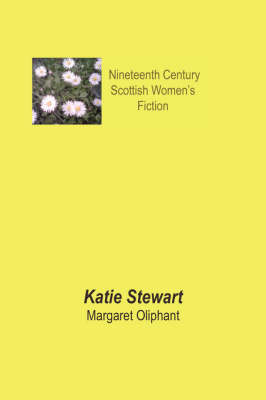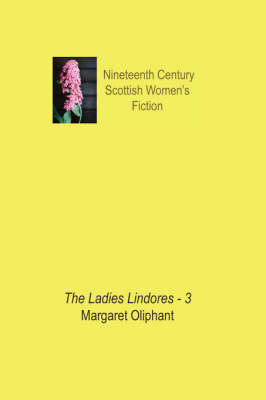Nineteenth Century Scottish Women's Fiction
2 total works
Katie Stewart is a charming tale of a tenacious heroine - the kind of woman most championed by Oliphant - who throughout her life in her family home of Kellie Mill and her adopted home of Kellie Castle, Fife, finds herself much loved. As Katie matures and advances beyond girlish romantic constructs, she finds out what it is to 'put her hand to a woman's weird' and 'keep up her heart' when serious misfortune demands much from her. Inscribed into the story of her sprightly and likeable heroine is an account of the passions connected to the 1745 Jacobite cause - a cause not supported either by the novel's eponymous heroine or indeed by Oliphant herself. Set in the coastal environment of Anstruther and Pittenweem, Katie Stewart also illustrates the cottage and fishing industries of the period and the dangers which beset them. First serialised by the House of Blackwood in 1852, Katie Stewart marked the beginning of Margaret Oliphant's long relationship with this prestigious Scottish publishing firm. Having been left for decades out of print, it is appropriate that this new edition is the opening entry of a new series dedicated to Scottish writing and published by a Scottish initiative.Anne McManus Scriven is the editor of the 'Nineteenth Century Scottish Women's Fiction' series.
Holding a Ph.D (Strathclyde, 2005), which focused on the writing of Margaret Oliphant and contemporaneous works, Anne has taught undergraduate courses on Scottish Literature at the universities of Strathclyde, Glasgow and Edinburgh. She is currently an Honorary Research Fellow of the Centre for Scottish Cultural Studies at the University of Strathclyde.
Holding a Ph.D (Strathclyde, 2005), which focused on the writing of Margaret Oliphant and contemporaneous works, Anne has taught undergraduate courses on Scottish Literature at the universities of Strathclyde, Glasgow and Edinburgh. She is currently an Honorary Research Fellow of the Centre for Scottish Cultural Studies at the University of Strathclyde.
This final volume of Margaret Oliphant's The Ladies Lindores concludes this fictional expose of the problematics surrounding the question of marriage for the upper-class Victorian woman. Serialised in 1882 and then published in full form in 1883 by the House of Blackwood, The Ladies Lindores is a frank appraisal of the politics and pressures laid on the Lindores women who are expected to conform to the Victorian ideology of female acquiescence but who stand on the cusp of emancipation. Having endured five years of an arranged and oppressive marriage, Caroline ('Carry') Lindores ecstatically embraces her sudden freedom but finds that her path to obtaining deep and lasting happiness is still riddled with difficulties. Her sister, Edith, faced with parental pressure to marry a rich and titled suitor whom she does not love, similarly finds her principles put to the test. Their mother, Mary, further estranged from her ambitious husband and increasingly perplexed by her children, questions the very nature of marriage itself.Written in the later years of her literary career, Oliphant's The Ladies Lindores is a realistic comment on the struggles of the authentic and loyal heart against the calculating coldness of personal promotion and avarice.

